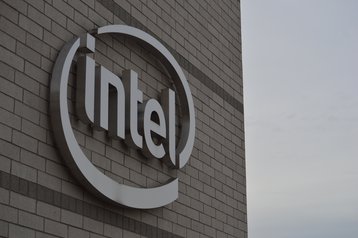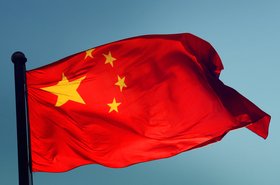US semiconductor giant Intel has issued an apology in China after it told suppliers not to source from a region linked to vast human rights abuses.
Intel told its suppliers to avoid products or labor from Xinjiang, where China operates internment camps, and is committing genocide against the local Muslim Uyghur population. It then apologized for this statement, saying it respected the "sensitivity" of the issue in China, which provides around a quarter of Intel's revenue.
The company said in its annual letter to suppliers that it had been "required to ensure that its supply chain does not use any labor or source goods or services from the Xinjiang region," following restrictions imposed by "multiple governments."
The letter was picked up by Chinese media, and soon led to calls for a boycott of Intel products on social media. Wang Junkai - the lead singer of the wildly popular boy band TFBoys - cut ties with Intel, having previously served as a local brand ambassador. “National interests trump everything!” his studio wrote.
State-owned Communist party tabloid The Global Times said that Intel was “biting the hand that feeds it," with the chipmaker earning 26 percent of its total revenues from the country.
“What we need to do is to make it increasingly expensive for companies to offend China so their losses outweigh their gains,” the publication said.
Following the backlash, Intel published a statement on WeChat and its China site saying that it only asked suppliers to avoid Xinjiang "in order to ensure compliance with US legal requirements," and that it was not an indication of its own position.
The company added: “We thank everyone for raising their questions and concerns and respect the sensitivity of the issue in China. As a multinational company, we operate in a constantly evolving and complex global environment and should adopt a prudent attitude. For causing trouble to our esteemed Chinese customers, partners and the general public, we express our sincere apologies."
Internment camps
The Chinese government is believed to be detaining more than one million Uyghurs in what it calls "re-education camps," which are essentially internment camps. Hundreds of thousands have been sentenced to prison. Women have reportedly been sterilized and given forced abortions, with some alleging they were sexually abused and even tortured.
Another 11 million Uighurs are tracked constantly, using equipment from companies like SenseTime and Huawei.
Amnesty and Human Rights Watch have accused China of crimes against humanity, in detailed reports that make use of undercover footage and satellite imagery.
The camps are also used for forced labor, and are linked to supplying the cotton industry as well as solar panels.
Earlier this month, the US Congress passed the Uyghur Forced Labor Prevention Act, which is currently awaiting President Joe Biden's signature. Earlier this week, press secretary Jen Psaki said Biden would sign it soon.
The legislation requires companies to prove that goods imported from China's Xinjiang region were not produced with forced labor. It was passed despite lobbying from companies including Apple which tried to water down or kill the bill.
Update: President Biden has signed the Uyghur Forced Labor Prevention Act into law.




